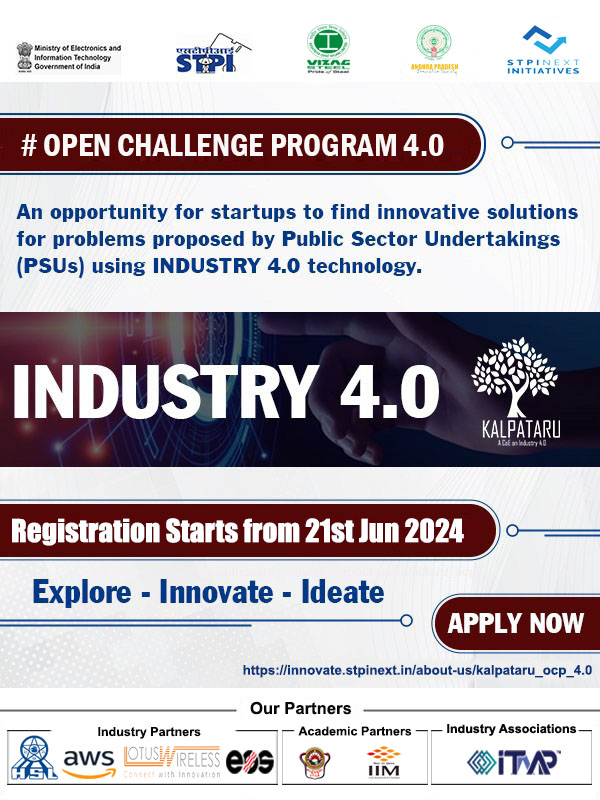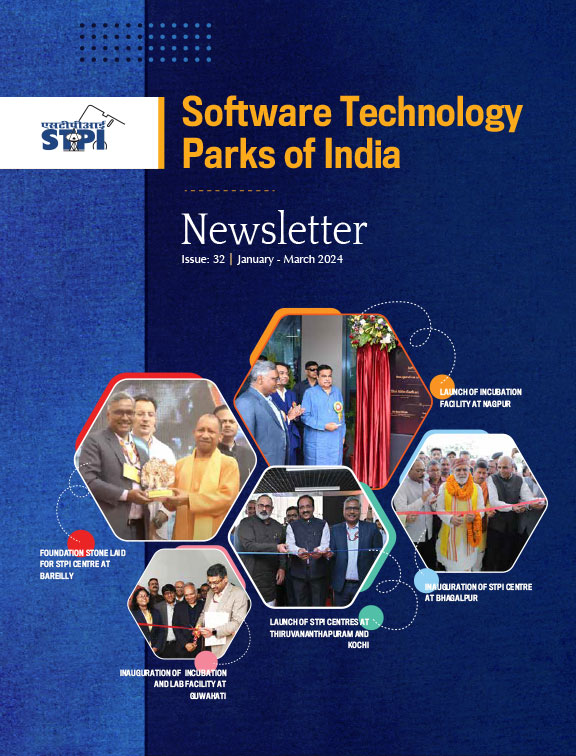"STPI’s strategy has focused on creating a supportive ecosystem around tier-2 and tier-3 cities, which have traditionally been less engaged by the IT industry. Out of our 65 centres, 57 are located in tier-2 and tier-3 cities," said DG STPI Arvind Kumar.
Over the past three decades, India's Information Technology and Information Technology Enabled Services (IT/ITeS) industry has evolved significantly, with revenues reaching $250 billion. The Software Technology Parks of India (STPI) has played a crucial role in this development, supporting the industry, fostering technological innovation, and expanding the IT sector to tier-2 and tier-3 cities, according to a senior official.
“We started our journey with three centres, and today we have a presence in 65 centres across the nation,” said Arvind Kumar, Director General of STPI, adding that his organisation's efforts have contributed to IT/ITeS services revenue and exports from STPI-registered units rising to Rs 9.19 lakh crore.
Kumar asserted that STPI's strategy has focused on creating a supportive ecosystem around tier-2 and tier-3 cities, which have traditionally been less engaged by the IT industry. “Out of our 65 centres, 57 are located in tier-2 and tier-3 cities,” Kumar said, highlighting that the expansion aims to decentralise the IT industry, promote regional growth, and foster a more inclusive economic landscape.
“We have been the implementing agency for various projects of ministry. One of them is the India BPO Promotion Scheme (IBPS), which has created numerous employment opportunities, generated significant revenue, and facilitated the migration of BPOs to tier-2 and tier-3 cities,” Kumar added.
The premier S&T organisation under the Ministry of Electronics and Information Technology (MeitY) is also managing the central government's Electronics Manufacturing Cluster (EMC) 2.0 scheme, which provides financial assistance for setting up EMC projects and Common Facility Centres (CFCs) across the country to strengthen the linkage between domestic and international markets by enhancing supply chain responsiveness, consolidating suppliers, reducing time-to-market, and lowering logistics costs.
So far, five projects in Andhra Pradesh, Haryana, Maharashtra, Uttarakhand, and Karnataka have been approved, with additional project approvals in the pipeline. According to Kumar, this approach of dispersing BPOs and creating electronics manufacturing clusters across different regions aligns with the ministry's directive to nurture entrepreneurship and bolster the IT/ITeS sector in these regions.
Beyond IT/ITeS, STPI has made significant inroads into the startup ecosystem by establishing 24 domain-specific Centres for Entrepreneurship (CoEs), supporting over 1,000 tech startups in areas such as blockchain, AI, IoT, Health Tech, and AR/VR. Its LEAP AHEAD programme, which provides intensive mentorship to startups, has been particularly successful.
“Under this programme, 90 startups received extensive mentorship, and 25 were taken to the TiE-Silicon Valley programme, where many secured funding for their technologies,” said Kumar.
Further recognising the need for collaboration among startups, STPI has launched SayujNet on its 33rd foundation day, a platform designed to connect startups with mentors and investors. “Multiple startups working in the same domain sometimes need to supplement or complement each other. SayujNet will bring tech startups under one umbrella,” explained Kumar.
To modernise the allocation of incubation space, which has traditionally been a cumbersome process involving physical interaction, STPI has introduced a portal for online booking of incubation spaces across its centres.
“We are modernising our incubation space allocation. Currently, space is allocated through physical interactions between the STPI Directorate and IT/ITeS industry executives. We are now creating a portal for online booking of space across the country,” said Kumar.
“Whether you have an office in STPI Pune but need space in STPI Gurgaon, or you are based in Bhagalpur and need space in Gurgaon, you can book it online,” he said.
With a focus on skilling, reskilling, and the role of next-generation technologies such as artificial intelligence, STPI has collaborated with the Sabudh Foundation to provide technology training. It has also partnered with Yotta Data Services, which recently collaborated with NVIDIA, a major AI chip maker, to develop India's sovereign cloud under the brand name “Ananta,”.
“Beyond conventional compute Infrastructure-as-a-Service (IaaS), Ananta will also offer Platform as a Service (PaaS), Software as a Service (SaaS), and GPU-based services, providing essential support to startups and small IT industries in developing deep tech products,” said Kumar.
Discussing the future, Kumar said that STPI aims to continue supporting the growth of the IT sector, fostering innovations, and ensuring that India remains competitive in the global digital economy.
“Today's celebration reflects on our past achievements and envisions the future, reaffirming our commitment to excellence, innovation, and inclusivity. We are here to celebrate the spirit of collaboration and partnership that has been instrumental to our success. Together, we will build on the strong foundation laid over the years and achieve even greater heights,” he said.





